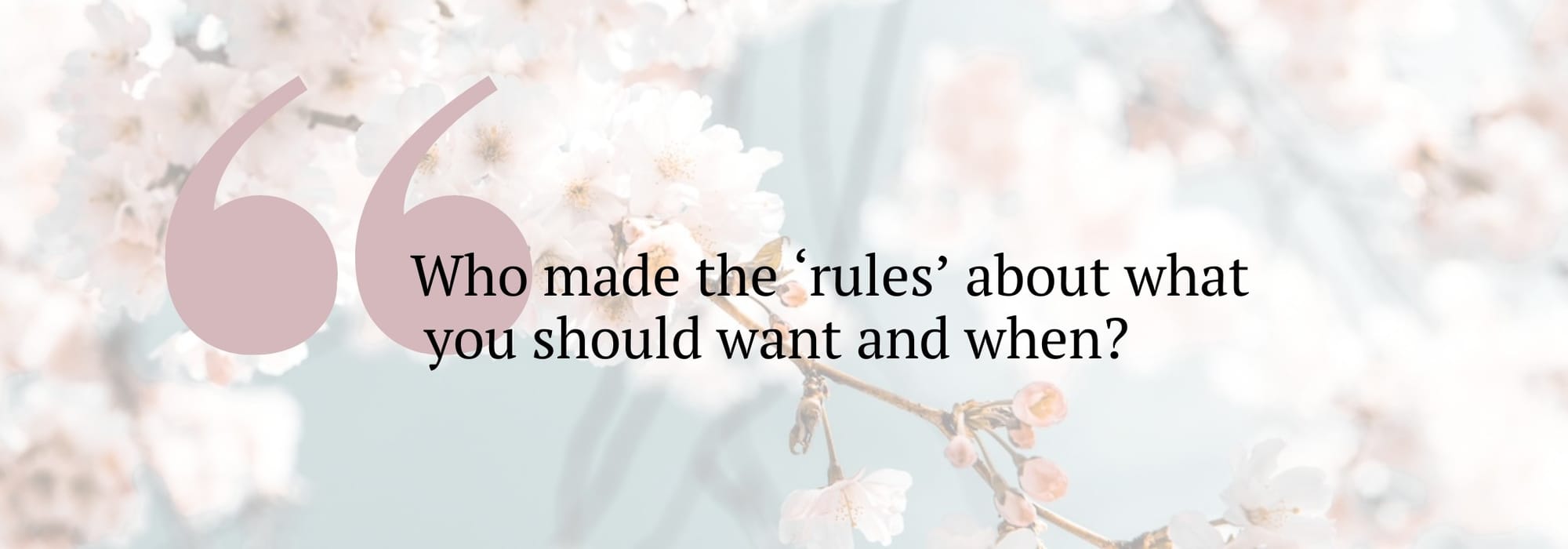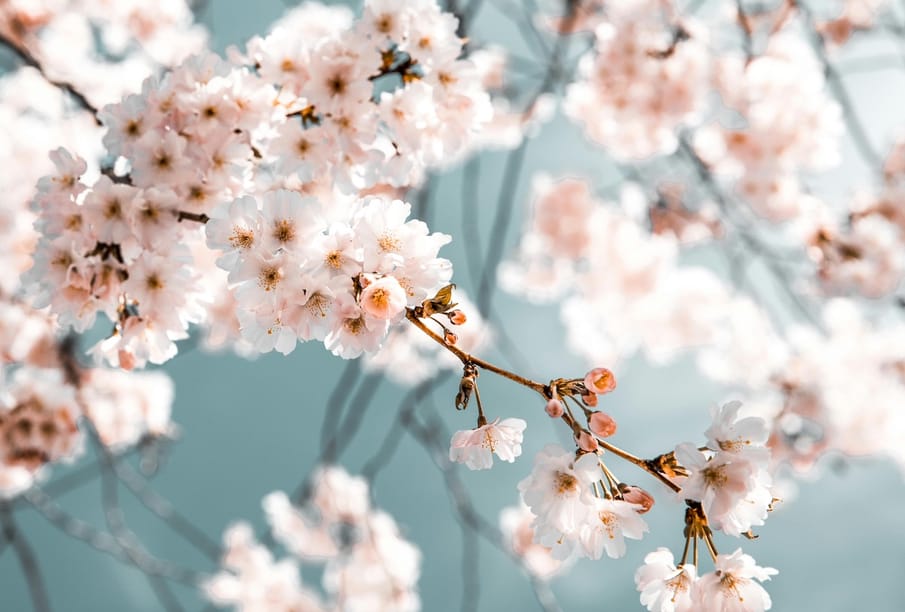There are lessons to be learned in the staggered variation of blossoming trees
‘Each flower blooms in its own time’: that’s the concept behind the Japanese idiom ‘oubaitori’. It comes from the kanji (the logographic Japanese writing system, adapted from Chinese characters) for the four trees that bloom in spring: cherry, plum, apricot, and peach. Each of these flowers is equally beautiful, and each one equally productive, but they bloom at different times. And there’s a lesson there.
You’ve probably heard of the phrase ‘comparison is the thief of joy’. But it’s not just a throwaway comment, but a real, studied behaviour. A 2024 study, published in the journal Personality and Individual Differences, looked into how comparing yourself to others you see on Instagram can impact your mental health. Researchers found that social media comparisons can make people feel more depressed, and being depressed can also make people more likely to compare themselves to others. This behaviour goes on to create a vicious cycle where depression leads to more comparisons, which in turn worsens depression.
What’s clear is that comparison to others can come with a lot of distress, so where does the behaviour come from? Life coach Helen Unwin has a theory.
“Standardised testing is commonplace throughout the school system, performance reviews rate you against your peers at work but, in my opinion, the comparison starts way before that; pretty much from birth.
“When my first son was born, I was part of an antenatal group, which was so valuable to me in the early days, and even now. But as soon as all the babies were born there was almost a race for them to be the first to reach each milestone.”
That race doesn’t stop there. Helen points to the example of talking to a well-meaning family member who asks: ‘What’s next?’
“Just finished school? When are you getting a job? Have a job? When are you up for promotion? Engaged? Have you set the date? Married? When will we hear the pitter-patter of tiny feet? Have a child? When will they have a brother or sister? And so on,” Helen says. “The rush is real, and the path defined.”
And then, as if that wasn’t all enough, we’ve also got social media to contend with.
“The comparison trap in social media comes from comparing our everyday life to momentary glimpses into a highlight reel of other people’s lives,” says Helen. “When you’ve had a bad day at work and you see Cheryl from primary school has 12 perfectly matching, clean kids with various medals hanging around their necks and a cheesy tagline like, ‘All in a day’s work,’ it doesn’t make you feel great about your life. Within minutes, we can go from being satisfied with our life, relationships, family, appearance, home, and kids to a place of comparison, lack, and ‘not-enoughness’.”

Over time, this constant race against other people can really begin to take its toll on us, in more ways than one. Helen points out that if we’re constantly looking at other people’s lives, we may never define what is truly important to us – and then when we do reach those goals, we feel empty. What’s more, continuously chasing the next thing leads us to neglect recognising the good things we do currently have in our lives.
Finding oubaitori
So, how can we take the powerful, poetic concept behind oubaitori to celebrate our unique paths and journeys, and apply it to our real, day-to-day lives? Helen breaks it down into three simple steps:
Step one: Work out what is really important to you
Helen suggests that this can be done in a few different ways.
Define your personal values
“Knowing what is really important to you can help you make decisions about relationships, work, friendships and your life as a whole,” Helen explains. “One way to do this is by defining your personal values. These are words or phrases that feel particularly important to you. Often they can be revealed when you feel angry about something, as it could mean your value has been ignored. You can find exercises and long lists of values online, or can visit the VIA strengths website (viacharacter.org). It has a free survey to help you find your top five character strengths (or values).”
Create a ‘Wheel of Life’
“The Wheel of Life is a great coaching tool to help create a view of what a 10/10 life would look like for you, in all areas of your life. You define what would make your life fantastic in each category or area, and choose one or more to work on at a time to try to build a life based on what is important to you. There are plenty of online templates, or you can find mine on my website, helenunwincoaching.com.”

Reflect on your life today
“Who made the ‘rules’ about what you should want and when? Was it you or someone else?” Helen asks. “If you enjoy journaling, answer this question using whatever format works for you – whether that’s typing it out, writing on paper, using voice notes, or any other tool that works for you. This will help you get clear on whether you are living a life on your rules or someone else’s. And if it is someone else’s, what would you like to do about it?”
Step two: Look at nature
Much like with the oubaitori metaphor itself, nature can hold untold inspiration. “I love trees for so many reasons,” Helen says. “They always make me reflect on how worth is often based on one right or wrong way to be, but the trees change so distinctively throughout the year, and every stage is necessary. I also think about the birds and wonder if the robins ever want to be ducks, and how much of a waste it would be if they couldn’t see they are just as lovely as ducks, and that variety makes the world more interesting.”
Step three: Is it time to change your algorithm?
“I noticed more and more on my streaming account that the shows I was being presented with weren’t based on my actual interests, but more about my demographic and what women my age ‘should’ want to watch (mainly reality TV where everyone was comparing themselves or being judged), so I decided to do something about it. I deleted my watch history, which gave a clear-out to the algorithm, and I started seeing a better mix of shows.
“I also do this in my social media accounts by searching up more positive content types to try to open up the subjects I see, so I don’t feel like I’m being pigeon-holed into someone a random computer thinks I am, rather than the real me.”
It’s your time to bloom
It’s fair to say that we all need a reminder to step away from the rat race every now and then. Comparison comes at us from every direction and, before we’ve even realised it, can throw us off course and distract us from the unique and wonderful qualities we already possess. Oubaitori is a reminder to go at our own pace and celebrate the beauty, talent, and originality that we already possess – and that’s something worth nurturing.


Comments